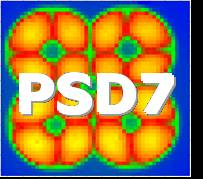Speaker
Prof.
Themis Bowcock
(University of Liverpool)
Description
The LHCb experiment at CERN depends critically on silicon sensors
to provide vertex, tracking and trigger information. The environment
the sensors will be operated in is unique amongst the next
generation of LHC experiments; the sensors will be run in high
vacuum conditions and will receive a high radiation dose. The design
of the sensors for LHCb is described, together with the criteria
that must be met.
The technological solution for the first generation of vertex
detector for LHCb is n+n (n implants in n bulk) silicon with radial
and azimuthal geometry. Details of the performance of the sensors
are given.
Further enhancements to the design are discussed with particular
attention to the fabrication of large scale n+p sensors. These
sensors are prototypes sensors which could be used in a potential
LHCb upgrade
Author
Prof.
Themis Bowcock
(University of Liverpool)

